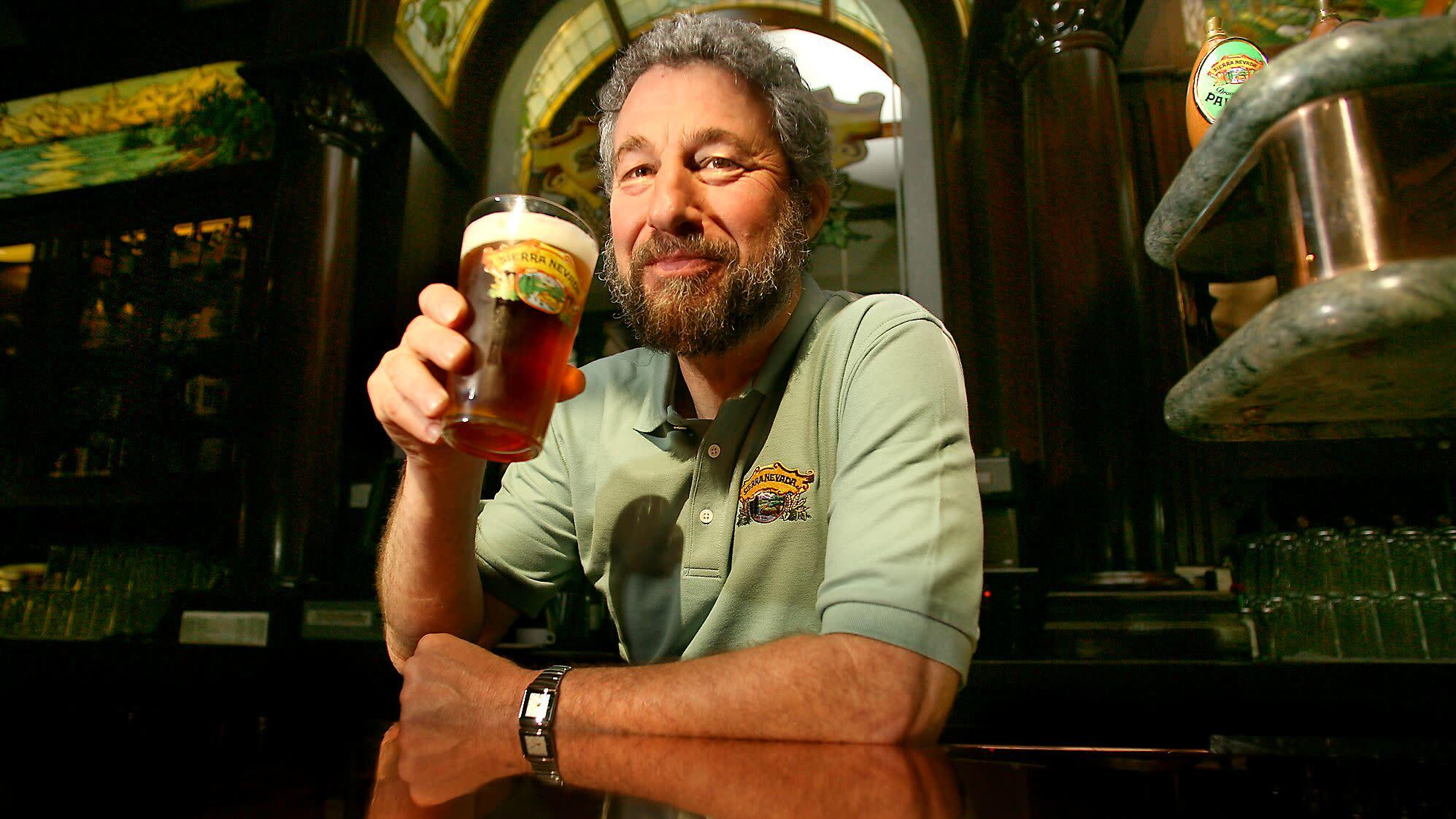Sierra Nevada Brewing Co.'s Founder Talks Craft Beer's Past, And Its Future Relevance
Sierra Nevada Brewing Co. turns 40 next year and, just as I do months before my birthday, it's already begun celebrating. Founder Ken Grossman hauled the brewery's original 1980 brewing system from Chico, California to Denver for the Great American Beer Festival earlier this month, and the contrast between that equipment and craft beer in 2019 was striking. Much has changed, evolved, and improved since Grossman brewed Sierra Nevada's first beers, and he says there's only more change to come.

I reached him by phone to talk about what's ahead for Sierra Nevada, how he got that old brewing equipment to Denver, and what the next decades of craft beer might look like. This interview has been edited for length and clarity.
The Takeout: What did it feel like to see that brewhouse in the midst of GABF 40 years later?
Ken Grossman: It was great actually getting it there. We got it road-worthy just the day before we got it out there, so Friday we were getting a license plate put on the brewhouse because it's on wheels itself, no trailer. It was like touch-and-go whether it would come out to Denver.
TO: What's something about the beer world today you didn't anticipate 40 years ago?KG: Just about everything. I went to the very first [Great American Beer Festival] and I can't remember how many breweries were there, just a handful though. The public knowledge perception of craft was just in its infancy. There were 150, 200 people there. It was not at all the show and event and music it is today. Just looking at the range of other industries that have spun off of craft now—suppliers and all that—the whole [GABF] was just quite a distinctively different even than it was in the beginning. Now you've got the Oscar Mayer Wienermobile there.
TO: When you founded Sierra Nevada, what did you imagine American craft beer would grow into?
KG: I don't know that I had a real vision of what it would grow into. I felt that there was an opportunity and a niche for people brewing different kinds of beers, because the U.S. beer landscape was very homogeneous. Really one style of light lager beers was what everybody drank. We saw an opening with consumers' interest in food and wine and teas and people making bread; craft beer fit that changing consumer mindset about what they eat and support. But I don't know that I had a vision that, 30 years from now, there'd be 7,000 breweries. I was just trying to establish our brand and eke out a living.
TO: So you thought it would remain fairly niche? KG: I think so. I never expected it to grow to double digit percentage of the beer industry. When we started, craft beer was well less than 1% of the US marketplace. We probably had some target numbers in mind but they certainly were much more modest.
TO: What do you think is craft beer's long term future in America? What will our beer scene look like in another 40 years?
KG: That's a little hard to predict. The beverage scene has certainly evolved a lot, with lots of kind of alcoholic and non alcoholic craft ciders and sparkling alcoholic beverages and kombucha—the list of what people are experimenting with and drinking has certainly increased in scope. I see that continuing. Certainly we've seen that with hoppy beers, that was a big barrier in the beginning. Then people began to love hops, and IPAs took off, and now lower bitterness IPAs are where people are at. Now, non-alcoholic flavored beverages have some buzz among people who might not want the carbs of a big malty beer. But it's hard to say long-term what it will look like.
TO: What's the biggest challenge a brewery like Sierra Nevada faces in 2019?
KG: It's the same challenge that the industry faces as a whole: making sure that we're delivering products that consumers want to drink. That's ever-changing, so just to make sure you stay relevant and stay close to your consumer as far as where their tastes are going. Rather than brewing the beers you may love to drink, you have to brew the beers your consumers want to drink as well.
TO: How do you balance that with keeping a brand identity and core philosophy as a brewery?
KG: We're always staying true to our core principles. We're certainly always going to be supporting our legacy Pale Ale and Celebration and Bigfoot—those are all beers we'll continue to do. But we'll keep an open mind to what other people want to drink as well.
TO: What are some upcoming brewing priorities for Sierra Nevada?
KG: We've got a whole bunch of stuff we're playing with right now. One's kombucha; we've been working on one of those for a number of months. We're working on some wild-fermented beer styles as well, and we're working on some different hazy options so we're sort of got experiments going in all directions. Currently most of the wild fermentation is happening in Chico [California] but we do plan to do some in North Carolina. Both have separate lacto-fermentation cellars and facilities.
TO: What's the best beer advice you ever received?
KG: I've gotten several good ones. One was: Bring plenty of money. This is a really expensive business to get into, and that advice was from an undercapitalized small brewer who came ahead of me and eventually went out of business.
TO: What's your favorite SN beer?
KG: I don't really like to call one out though right now Celebration is just being packaged; every year I love to drink fresh Celebration. And of course Pale Ale's always there, but I'm a hop guy, so when we have fresh hops, that's where I'm at.
